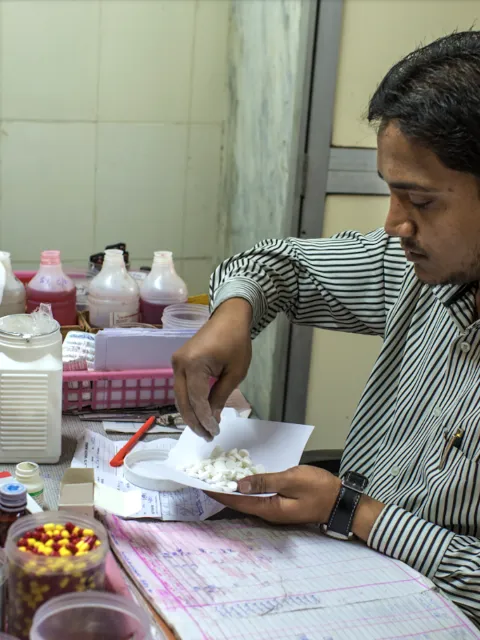The Movember Movement - Changing the face of men's health
The Movember campaign has inspired over five million men to grow moustaches each November since 2003. In that time, those men have raised funds for hundreds of programmes to tackle the issue of prostate cancer.

Biomedical research constitutes the vast majority of these projects, but Movember recognises there are also other lines of attack that may transform treatment and care for men diagnosed with this disease.
Continuing to be physically active throughout cancer treatment has been proven to help prevent a decline in cardiorespiratory and muscular fitness.
Exercise also helps patients with early prostate cancer cope with fatigue, improves their overall wellbeing and reduces the likelihood of dying from the disease which claims the lives of 380,000 men, globally, every year.
It has been estimated that there are more than 5.6 million men around the world living with or beyond prostate cancer. To meet this need, Movember’s True North website provides tailored lifestyle advice including diet tips and how to exercise safely.
Last month (October 2019), a thorough review of the available evidence, conducted by an international group of 40 experts led by the University of British Columbia, resulted in the development of new guidelines for prevention, management and recovery from cancer.
The updated international recommendations published in the journal Medicine & Science in Sports & Exercise, advise that taking part in intensive exercise helps improve survival after a diagnosis of breast, colon and prostate cancer.
This is good news for patients because it gives a real opportunity for the continued integration of exercise medicine within cancer care.
However, the benefits of exercise for men with advanced disease are still unknown. To address this knowledge gap, MOVEMBER has initiated the INTERVAL-GAP4 trial, the first randomised controlled trial in the world which is aiming to prove whether high-intensity aerobic exercise and resistance training could extend the lives of men with metastatic prostate cancer.
'The INTERVAL-GAP4 study is an ambitious project and there is a long way to go but we hope it will eventually lead to a revolution in the way we tackle advanced prostate cancer.' - Dr Mark Buzza, Global Director of prostate cancer biomedical research, Movember Foundation
Over 20 research teams from eight countries, including the UK, US, Canada, Australia and Germany, are working together to recruit 866 men to test whether exercise could be prescribed as a medicine alongside standard treatments such as chemotherapy, radiotherapy or hormone therapy.
GAP4 has been designed like a drug trial. Half of the men who sign up are assigned to the active (or supervised exercise) arm, while the other half are put on a control arm of self-directed exercise. Every man participating in the study is given regular check-ups alongside their normal treatment.
Men on the supervised exercise arm are given a detailed training plan – designed to increase their strength, fitness and overall health - specifically tailored to them and their disease which they will follow for two years. They are required to do three sessions of exercise a week for the duration of the trial. The programme includes two 60-75 minute sessions of mixed resistance and aerobic exercise and one 30-45 minute session of aerobic exercise each week.
Men on the control arm of the trial are given exercise advice and both groups receive psychosocial support.
Institutions that have joined the GAP4 trial include Edith Cowan University in Perth, Australia, the University of Colorado in the US, University of Montreal in Canada, Kings College London and the German Sports University in Cologne.
A 2016 pilot study led by Professor Rob Newton from Edith Cowan University in Western Australia, published in the British Medical Journal Open, demonstrated that this type of exercise has the potential to be a powerful tool to delay the progression of advanced prostate cancer.
It also had the effect of helping men lose weight they may have gained through hormone therapy and helped them cope better with cancer-related fatigue and the toxic effects of chemotherapy.
The men who join GAP4 are not only directly benefitting from the exercise programmes but are also helping researchers to get a better understanding of how optimally treat men with advanced disease.
Ultimately, men who get involved in this project are helping the next man down the line by working with us to improve the lives of all men living with prostate cancer.
About the Movember Foundation:
*The Movember Foundation is the largest men’s health charity and a member of UICC. It is the only charity tackling men’s health on a global scale, year-round and addresses some of the biggest health issues faced by men, including prostate and testicular cancer. Much like UICC, Movember aims to ensure that critical knowledge is shared across borders, research gaps are identified and promising areas explored. For more information visit www.movember.com.
Last update
Thursday 28 November 2019
